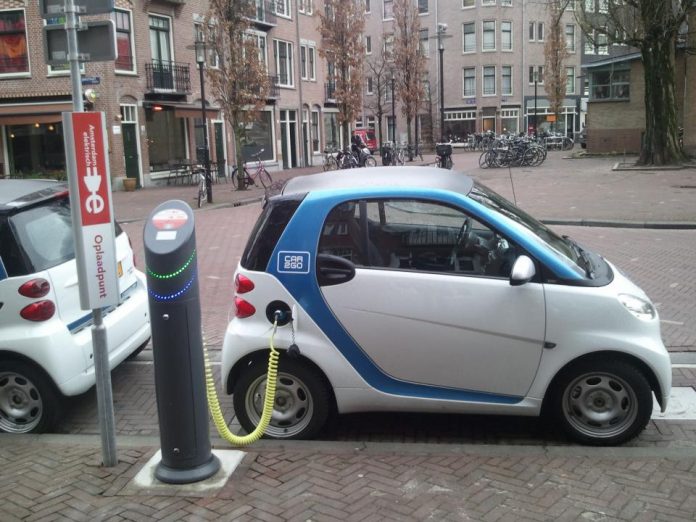BEIJING: China has set a deadline of 2019 to impose tough new sales targets for electric plug-in and hybrid vehicles, slightly relaxing an earlier plan to launch the rules from next year that had left global automakers worried about being able to comply.
Carmakers will need to amass credits for so-called new-energy vehicles (NEVs) equivalent to 10 percent of annual sales by 2019, China’s industry ministry said in a statement on Thursday. That level would rise to 12 percent for 2020.
A single vehicle can generate multiple credits meaning the proportion by NEVs by volume would likely be lower.
The targets, announced by the Ministry of Industry and Information Technology (MIIT), closely mirror previously announced plans, but remove an explicit 8 percent quota for 2018, in effect giving carmakers an extra year grace period.
The quotas are a key part of a drive by China, the world’s largest auto market, to develop its own NEV market, with a long-term aim to ban the production and sale of cars that use traditional fuels announced earlier this month.
Global automotive manufacturers, however, had urged a softening of the proposals for all-electric battery vehicles and electric plug-in hybrids.
Under the rules, car makers will receive credits for new-energy vehicles including plug-in hybrids and fully electric cars that can be transferred or traded. Firms with annual sales volumes above 30,000 units will need to comply with the targets.
These credits – which will vary depending on the range and performance of the vehicle – will be used to calculate if firms have met their quota, a system which would likely mean the actual proportion NEVs made up of total sales was lower.
GREEN CAR ROLL-OUT
Carmakers were in general positive about the move.
“We welcome the Chinese auto industry’s shift towards greater adoption of NEVs and will comply with relevant regulations presented by authorities,” Ford Motor Co said in a statement responding to the announcement.
General Motors Co said it would “strive to comply with the NEV mandatory requirements”, though it added, “continued joint efforts by the government and companies are essential to building broad-based consumer acceptance for NEVs”.
“GM has sufficient capacity to manufacture NEVs in China,” it said in a statement.
Japan’s Honda Motor Co Ltd said it planned to launch an electric battery car in China next year and would “try to expand our lineup of new energy vehicles” to meet the quotas.
China is keen to combat air pollution and close a competitive gap between its newer domestic automakers and global rivals. It wants to set goals for electric and plug-in hybrid cars to make up at least a fifth of Chinese auto sales by 2025.




